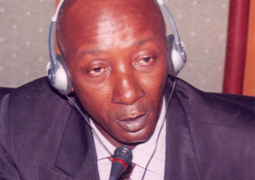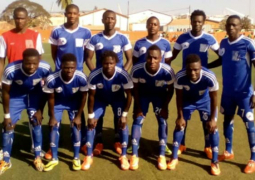Trafficking
In Persons (TIP) is a form of modern day slavery. It involves the trading of
human beings for the purposes of exploitation. This exploitation can take
different forms, such as: prostitution forced and bonded labour, forced
marriage, and organ harvesting.
Statistics from the International Labour
Organisation (ILO), Global Estimates 2017; state that 24.9 million people were
forced to work under threat or coercion. The financial implications of
trafficking in persons are staggering, with trafficking in persons ranking
second only to drug trafficking in profits, measured in millions of dollars.
However, the first step in combating this
aggravating global issue is increasing awareness among citizens.
Due
to the growing numbers of victims being transported by land, air, and other
means, responding to trafficking in persons becomes one of the best assets in
the global crusade against this issue.
Recently, the International Organisation for
Migration (IOM) - Gambia, wrapped-up a three-day training for Tourism Security
Unit (TSU) on Trafficking In Persons (TIP).
The
initiative is part of a three-year project aimed at supporting national efforts
to combat trafficking. And it forms part of the IOM’s efforts in engaging the
Gambian tourism sector in efforts to identify and combat trafficking.
This
training could not have come a better time than now, when developing countries
are faced with numerous threats.
As
rightly stated by the U.S. ambassador to The Gambia, tourism plays an important
role in the country’s economy, as it
represents about 20% of the country’s GDP.
Suffice
to that the training is in line with the Gambia’s Master Plan document as well
as the Gambia’s position at Tier 3 in terms of trafficking in persons, child
protection and prevention, valuable migrant children at risk among others to be
adequately discussed during the ongoing training.
For
The Gambia to successfully tackle the problem of TIP and child abuse, a strong
collaboration and partnership with relevant stakeholders including police,
government and civil society organisations must be prioritised.
We
must understand that trafficking in persons is a human rights abuse and
therefore a crime. Thus, all should be alerted to halt any form in the country.
We
therefore, implore on participants to do justice to the raining by just
implementing what they have been taught. Already, equipped with the necessary
skills and knowledge, let them not
relent in their laurels in identifying and referring victims of human trafficking
in line with national legislation and international instruments.
“Maybe
slavery has been with us for centuries because of the inclination to maintain
economic systems geared more toward commodifying human existence than
developing its spiritual, creative, or scientific potentials. Such commodification
instantly erases any recognition of humanity as a priceless value unto itself
and reduces individuals as well as entire races, or a specific gender, to a
bargain-priced ‘other.”
Aberjhani
Read Other Articles In Article (Archive)
Muhammed Lamin Jarsey Arabic School graduates 26 students
Jun 17, 2014, 11:59 AM



